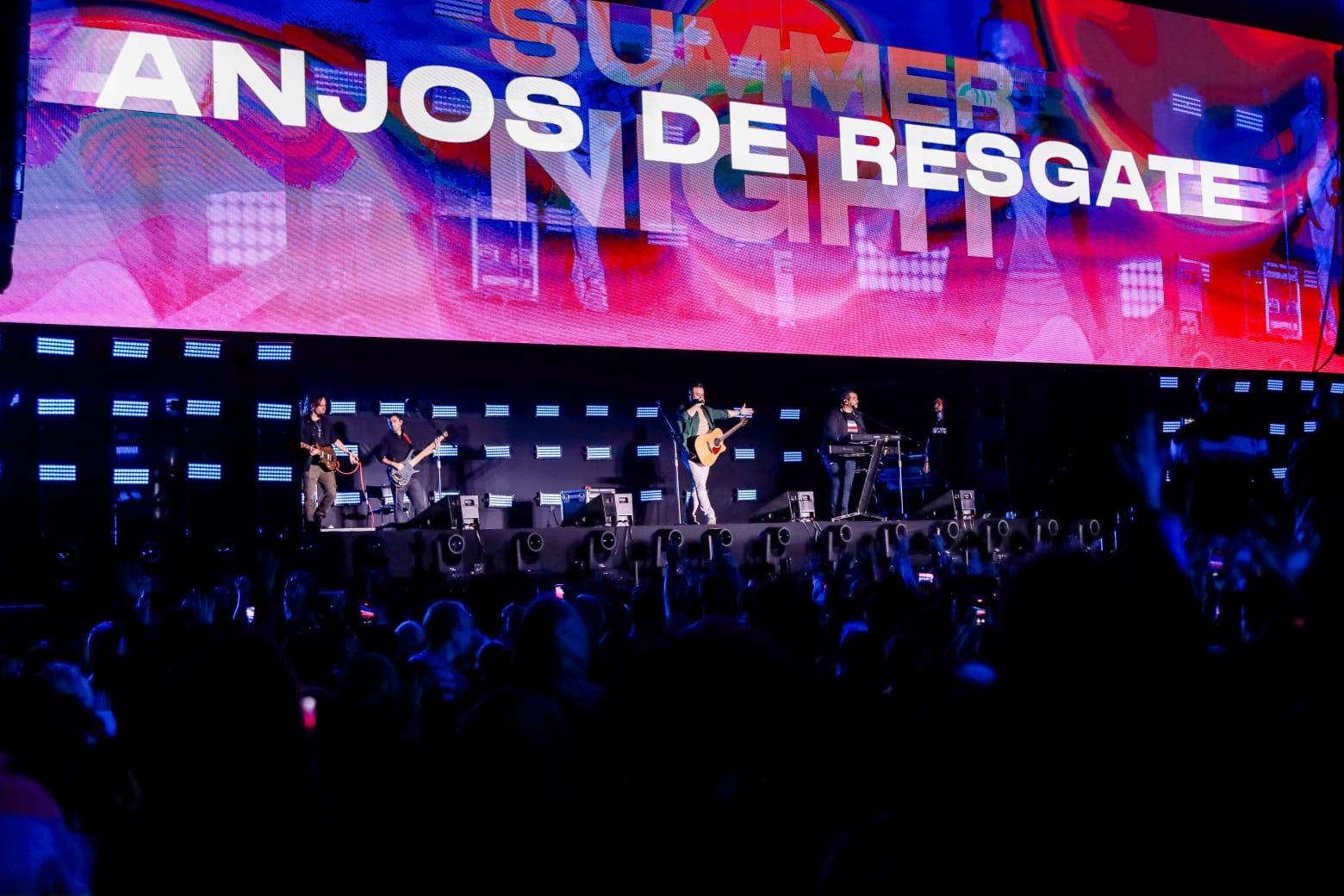SÃO PAULO – A festival of Catholic music drew more than 40,000 attendants on May 17 to Santa Bábara d’Oeste, a city with 180,000 inhabitants about 85 miles away from São Paulo, Brazil’s major economic hub.
Announced as Brazil’s “largest Catholic vigil,” Summer Night involved the concerts of 17 singers, bands and DJs on two simultaneous stages between 6 PM and 6 AM (of the following day).
A Mass was celebrated during the festival, and at least 40 priests took turns to hear confessions till 6 AM (the Diocese of Piracicaba, which conceived the event, affirmed that the demand for confessions was too large and that many people had to leave without managing to confess.)
That was the second time Summer Night occurred. The first one was in 2014, but it was then organized in the city of São Paulo. The festival is a kind of offspring of Summer Beats, an event that first happened in 2006 and used to gather Catholic and Evangelical music. In 2018, Summer Beats became a solely Catholic event.
“We were invited and incentivized by Bishop Devair Araújo da Fonseca to be bold and take the festival to a smaller city in the heartland of the State of São Paulo,” Antônio Cerqueira Junior, the founder of Summer Beats and Summer Night, told Crux.
According to Junior, the number of Catholic music festivals and concerts in Brazil is still terribly low. A few Catholic movements – connected to the Charismatic Catholic Renewal – promote their own events, but the most common form is a combination of preaching and music.
“Other than that, most Catholic events are focused on conferences and lectures. Some of them are massive, but there’s no music involved,” he said.
With at least 31 percent of the Brazilian population, the Evangelicals had a fast growth in the South American country over the past few decades. In 1970, they corresponded to only 5 percent.
Part of that success involved the development of a gigantic Gospel music industry, nowadays a multi-billion economic segment. Great Gospel festivals have been regularly organized in Brazil since the 1990s.
Among Catholics, the natural path was to follow the steps of the Gospel music, but with less support and less money. There still exists a huge pent-up demand, according to Junior.
“Especially for young Catholics, the number of available options when it comes to Catholic music events is still low,” he described.
At the same time, initiatives like Summer Night bring from secular concerts up-to-date visual effects and sound infrastructure, allowing for an experience the audience is not used to.
“The latest edition of Summer Beats in São Paulo gathered 200,000 people,” Junior said
Bishop da Fonseca explained that he always had the desire of organizing an event for the youth in his diocese, but different problems would always impede him to go on with the idea.
“On a visit to Santa Barbara, I talked about it to the city government, and they offered a venue where we could organize a concert,” he recalled.
Da Fonseca said that the public was mostly formed by young people, but there was a significant presence of full families – including children and elderly citizens. The majority had some connection with Catholic movements, but even non-Catholics attended the event, Junior described. People from different states of Brazil participated.
“We settled up a chapel for adoration, so people could pray during the night. During Mass, I told the audience: That is not just a festival. It’s an encounter with Jesus. It’s about waking up,” he said.
Apparently, that goal was successfully met. Da Fonseca said that the confessors told him that they were admired with the piousness of most confessions they heard.
“The beauty of the music and of the visual effects, the experience of being present with so many people at the same event can attract our attention and bring us to Christ. Of course, that faith has to be cared for after that. But it’s a very important start,” he said.
The event was free of cost. Da Fonseca plans to organize new editions of Summer Night in Santa Bárbara every year from now on, as well as other music events in other parts of his diocese.













